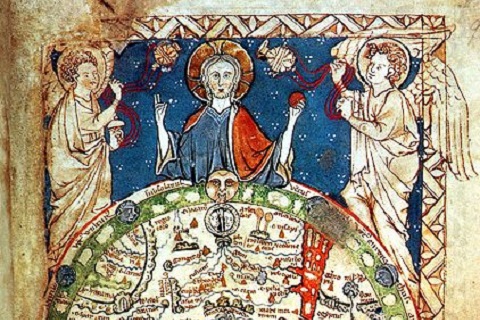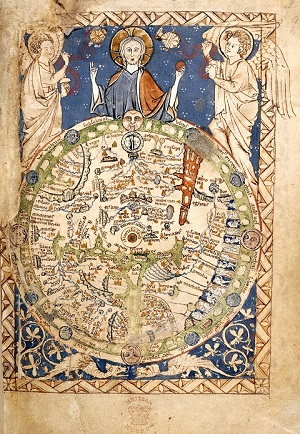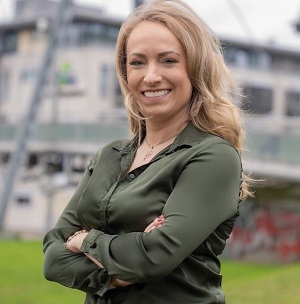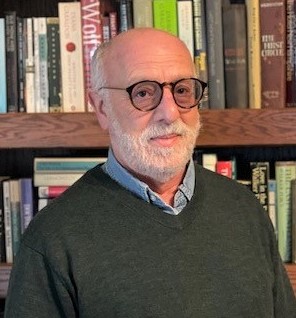Identity, culture and language in the pre-modern world (c. 500-1700): interactions and exchanges - CMRC Study day, 31 May 2022 Event

- Time:
- 9:40 - 19:30
- Date:
- 31 May 2022
- Venue:
- University of Southampton, Avenue Campus, Lecture theatre C (65/1175) and Online.
Event details

The CMRC held a hybrid study day on ‘Identity, culture and language in the pre-modern world’, responding to the emerging interest in global histories and questions of cross-cultural interaction and exchange that has energized the fields of Medieval and Early Modern studies in recent years. This energy filled Lecture Theatre C, not only through fascinating papers and lectures delivered by nine speakers (both junior and more senior scholars), but also from the stimulating discussions which followed on. The themes took us across the globe, with a particular stress on the entangled histories of Europe and Africa, and a superb keynote lecture delivered by Prof. Verena Krebs on medieval Ethiopia (Ruhr-University, Bochum).
Read the full programme here
Entangled Medieval Worlds — Latin Europe and Christian Ethiopia in the 15th and early 16th centuries
Prof Verena Krebs (Ruhr University Bochum, Germany)

In 1963, a group of French archaeologists came across a number of early 16th-century painted enamels in the Ethiopian monastery of Dima Giyorgis. One of them featured an inscription in the ancient Ethiopian language of Gǝʿǝz, identifying the carefully rendered figures of two seated kings aṣe Naʿod and aṣe Lǝbnä Dǝngǝl, father and son, kings of Solomonic Ethiopia between 1494 and 1540 CE. How did this object end up in a remote Ethiopian monastery? And what is its connection to more than a dozen embassies sent out from Solomonic Ethiopia to Latin Europe in the late Middle Ages? In this talk, Verena Krebs will offer a view on how an African Christian kingdom encountered the larger world, and trace a delicate yet extensive web of entanglements between the Horn of Africa and the late medieval extended Mediterranean.
You can listen to Prof. Verena Kreb’s lecture here.
The study day also included a round table on ‘Interactions and Exchanges in the medieval and early modern Past: the Challenge of Languages’. It involved five participants who discussed the major challenge of languages such studies raise, with a concern for future generations. The participants highlighted the importance of networks and existing resources, but they also emphasised the role that institutions have to play in supporting language-learning. How can we study interactions between cultures without knowledge of different languages? How can we extend and enrich curricula geographically and culturally without maintaining and extending our linguistic range?
· Dr Alaric Hall (Leeds)
· Prof Richard Ingham (Westminster)
· Prof Verena Krebs (Bochum)
· Dr Helen Spurling (Southampton)
· Dr Lena Walgren-Smith (Southampton)
· Chair: Dr Nick Karn (Southampton)
You can isten to this round table here.
The study day was followed by the annual Reuter lecture, which was this year held in collaboration with the Parkes Institute. Chaired by Professor Mark Spearing, it was splendidly delivered by Professor Irven M. Resnick (University of Tennessee, Chattanooga, USA) and gave us a deep insight into the Medieval Wet-nurse controversy linking it in to broader interreligious issues between Christians and Jews and manifestations of later medieval racism.
A Wet-nurse Controversy: Jews, Christians, and later Medieval ‘Racism’
Prof Irven Resnick (University of Tennessee, Chattanooga USA)

Professor Resnick will look at the controversies triggered by the employment of Christian wet-nurses by Jews in the Middle Ages. Medieval Jews employed Christian wet-nurses despite repeated ecclesiastical condemnations, which typically did not prevail over social and economic interests. But in Etsi Judeos (July 15, 1205) Pope Innocent III, who complained loudly that Jews are unscrupulous usurers, thieves, blasphemers, and secret murderers of Christians, included an unsubstantiated rumour that has generated much scholarly debate: that “on the day of the Lord’s Resurrection (Easter),” after they have received the Eucharist, “the Jews make these women pour their milk into the latrine for three days before they again give suck to the children.” The controversy over wet-nurses did not end there, however. Churchmen will also prohibit Christians from employing Jewish wet nurses, to preserve Christian infants from the ‘stain’ of Jewish moral and physical depravity, turning to later medieval medicine and natural philosophy to affirm the racial inferiority of Jewish blood.
You can listen to Prof. Irven Resnick’ lecture here.
A round table involving five participants discussed the major challenge of languages such studies raise, with a concern for future generations. The participants highlighted the importance of networks and existing resources, but they also emphasised the role that institutions have to play in supporting language-learning. How can we study interactions between cultures without knowledge of different languages? How can we extend and enrich curricula geographically and culturally without maintaining and extending our linguistic range?
The study day was followed by the annual Reuter lecture, which was this year held in collaboration with the Parkes Institute. Chaired by Professor Mark Spearing, it was splendidly delivered by Professor Irven M. Resnick (University of Tennessee, Chattanooga, USA) and gave us a deep insight into the Medieval Wet-nurse controversy linking it in to broader interreligious issues between Christians and Jews and manifestations of later medieval racism.
You will soon be able to listen to the two keynote lectures on the CMRC website, which will also include a full programme and a working document based on the Round Table discussion. It remains to me to thank all the co-organisers of this study day: Dr Marianne O’Doherty, Dr Lena Wahlgren-Smith, Dr Frederica Teale and Merel Veldhuizen as well as Clodagh Owens and Jennifa Ghazi. Last but not least, we are much indebted to the Parkes Institute for the technical support, with a very special thanks to Katie Power.